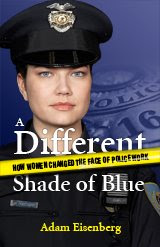Parties often agree to keep settlements confidential -- defendants will often pay extra for the secrecy and plaintiffs are willing to promise quiet in exchange for the settlement. But it's a public concern if the confidentiality keeps the public from learning of unsafe products or conduct that could affect them as well as the particular plaintiff who settled.
Florida attempted to limit the number of such settlements with the Sunshine in Litigation Act, that required openness if the information related to a public hazard. But in the decade or more since the act, the courts and parties in Florida have still allowed secret settlements.
Prof. Roma Perez reviews Florida's experience and suggests improvements in Two Steps Forward, Two Steps Back: Lessons to Be Learned from How Florida's Initiative to Curtail Confidentiality in Litigation Have Missed Their Mark, 10 Fla. Coastal L. Rev. 163 (2009).
Shared via AddThis
Tuesday, September 29, 2009
Limiting Secret Settlements - the Florida Experience
Monday, September 28, 2009
Another Cautionary Facebook Tale

I got the Davis Law Group's September 2009 newsletter in my email and took a look. Christopher Davis tells about a client who had been injured in a car accident. There was evidence about the young man's injuries and the likelihood that his back would give him trouble from time to time for years to come. The defense, though, found pictures and videos on his Facebook and Myspace pages showing him snowboarding. And that led to a lower settlement, because of how those images would play with the jury. Even if the plaintiff had considerable pain over long stretches and always would, just a few carefree minutes on the slopes would make it look like the accident hadn't had much impact. And that's why Davis says that he always cautions his clients to be careful what they post.
Graphic from Washington State Department of Licensing.
Saturday, September 26, 2009
Interesting Wash. Criminal Law Blog
Graham Lawyer Blog is by Steve Graham, a solo criminal defense lawyer in Republic, WA. The posts I looked at were interesting and thoughtful.
Because of his location -- he practices in the courts of the Colville Reservation as well as in Okanogan, Ferry, Stevens, Grant, and Spokane Counties -- he follows Indian law issues as well as general criminal law, e.g.,
- Differences Between Tribal and Federal Court System Evident From First Hearing on Kevin Pakootas
- Possible Challenge to Jury Venire for Native-American Defendants in Washington Counties Overlapping Reservations
- Supreme Court Rules Lummi Nation Can Make Arrests Off Reservation
- Native-Americans Protest Treaty Rights Infringements in North Okanogan County
Would you like to check out other local blogs? See Law-Related Blogs in Washington State.
By the way, if you're not sure where Republic is, see this:

Friday, September 18, 2009
Mass. Town Pays $3.4M to Family of Wrongfully Convicted Man
The town of Ayer and five of its insurers have agreed to pay $3.4 million to settle a civil rights lawsuit filed by the estate of the late Kenneth Waters, who spent more than 18 years in prison for a murder he did not commit before his sister earned a law degree and helped free him through DNA evidence.Ayer to pay $3.4m for unjust conviction, Boston Globe, July 15, 2009.
* * *
The lawsuit, which was scheduled to go to trial next week, accused Ayer police of coercing false testimony to convict Waters and withholding evidence that could have cleared him.
See also Betty Anne Waters wins $10.7M for brother's wrongful murder conviction, Nat'l L.J., Sept. 17, 2009 (you have to register to view the story).
The story of a sister who gets her GED and puts herself through college and law school in order to help her brother -- and then succeeds! -- is the stuff of Hollywood. And indeed, Betty Anne Waters is due out later this fall. Hillary Swank plays Betty Anne Waters and Minnie Driver plays her law school friend Abra Rice. Rice, now a public defender, is profiled in Courtroom Drama, New Haven Advocate, Aug. 18, 2009.
Here's the real Waters at an Innocence Project event (she appears at 2:58):
Huge Malpractice Verdict Against Firm for Not Telling Client of Dismissal
An employment discrimination plaintiff whose suit was dismissed because of an error in the complain won a huge malpractice verdict against a firm for not telling her of the dismissal until it was too late to refile and fix the error. The 100-lawyer firm says it was all the fault of one lawyer who messed up and has since left the firm and been disbarred. Becker & Poliakoff to Appeal $4.5M Malpractice Loss, Blames ‘Rogue Lawyer’, ABA Journal Law News Now, Sept. 18, 2009.
Thursday, September 17, 2009
L.A. judge says he can't afford to remain on federal bench
L.A. judge says he can't afford to remain on federal bench, Nat'l L.J., Sept. 16, 2009:
Fewer than two weeks after U.S. Senate Judiciary Committee Chairman Patrick Leahy, D-Vt., introduced a bill that would authorize more federal judgeships nationwide, a federal district judge in Los Angeles announced that he would resign on Nov. 2 because he can no longer afford to remain on the bench.
U.S. District Judge Stephen G. Larson of the Los Angeles-based Central District of California said in a prepared statement on Sept. 15 that the failure by Congress to increase judicial salaries made it impossible to support his seven children, all under age 18.
* * *
On Sept. 8, Leahy introduced SB 1653, the Federal Judgeship Act of 2009, which would establish 63 new permanent and temporary judgeships across the country. It would be the first legislation in 19 years to address federal judgeships.
The bill is here.
The new judgeships proposed in our "neighborhood" are:
4 9th circuit judgeships
1 temporary 9th circuit judgeship
1 W.D. Wash. judgeship
1 D. Ore. judgeship
What's this about "temporary" judgeships? Doesn't Article III promise judges life tenure ("during good behaviour")?
Well, yes. The bill provides that the JUDGE would get a permanent appointment, but the court would only have that many slots temporarily: "For each of the judicial districts named in this subsection, the first vacancy arising on the district court 10 years or more after a judge is first confirmed to fill the temporary district judgeship created in that district by this subsection shall not be filled."
Wednesday, September 16, 2009
Vanity Fair on the Craigslist Murder
Maureen Orth on the Craigslist Murder | vanityfair.com, Oct. 2009.
The "Craigslist Murder" was a crime made possible by the Internet, and the prime suspect was apprehended through online sleuthing. But the killing of Julissa Brisman allegedly by Boston University medical student Philip Markoff is still a very human mystery, with dark sexual overtones and surprising contradictions.
Monday, September 14, 2009
A Legal Battle for Lawyers - Online Attitude vs. Rules of the Bar
A Legal Battle for Lawyers - Online Attitude vs. Rules of the Bar - NYTimes.com, Sept. 13, 2009. Several incidents are reported -- bar discipline for a blog post criticizing a judge, firing for disclosing confidential information, getting called by a judge for asking for a trial delay and then posting a series of Facebook statuses about partying. The moral? Be careful what you say!
Wednesday, September 9, 2009
A Different Shade of Blue

I just read Adam Eisenberg, A Different Shade of Blue: How Women Changed the Face of Police Work (HV8023 .E57 2009 at Good Reads).
The author (a graduate of the University of Washington School of Law who is now a court commissioner) got the idea for a book about female police officers when he was a prosecutor and met some women working in this field dominated by men. His book takes us back to the 1920s, when the Seattle Police Department hired its first women. It is enlivened by dozens of first-person accounts, starting with some women who were in the old Women's Bureau in the 1940s and 1950s. There are a wide range of vivid stories, starting with some by true-crime writer Ann Rule, who reminisces about her time in the Women's Bureau in the 1950s.
The interviews include a wide range of women -- different times on the force, different races, different sexual orientations.
Many of the stories concern the challenges of being among just a handful of women in a force filled with men. What uniform do you wear? Where do you shower? How do they treat you in the police academy? How do you establish trust with your coworkers? How do you deal with rumors? What do you say if your partner's wife says she doesn't feel safe with him having a female partner?
Sexual harassment has been a problem in the department for many women. And reporting it has often created worse problems, so many women have chosen to remain silent.
For more, check out Eisenberg's blog, Shades of Blue, where he posts news about women in police work, including some from around the world.
Ms. named this book one of its "Great Reads for Summer 2009." Nicely done, Adam!
